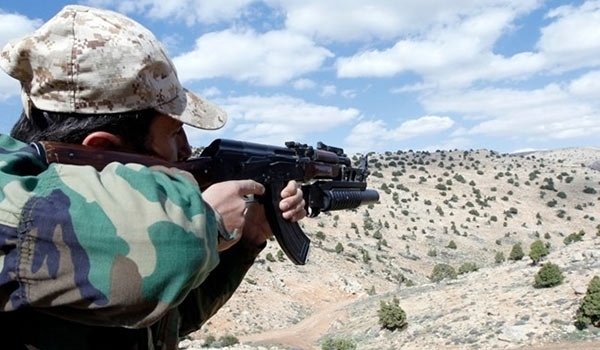Syria: Takfiri Terrorist Commanders Killed, Bomb-Making Workshop Destroyed in Zabadani

The Syrian army and Hezbollah forces killed several Takfiri terrorist commanders and destroyed an IED (improvised explosive device) manufacturing site in the city of Zabadani in Damascus province on Friday.
Four Takfiri terrorist leaders named Khaled Omar, Ebrahim Javish, Besam Hazima and Abu Ahmed Ziyad Nassif were killed in heavy clashes with the Syrian troops today.
The Syrian troops and resistance forces also destroyed an IED-manufacturing workshop in Barda street of Zabadani during their mop-up operations in the strategic city.
Earlier today, tens of militants of Jeish al-Islam terrorist group surrendered to the government troops in the city of Zabadani.
Syria’s National Reconciliation Committee announced today that a large number of militants laid down arms and surrendered to the Syrian authorities.
A number of senior commanders of Jeish al-Islam have also surrendered themselves to the Syrian army in Zabadani.
The development came after President Bashar al-Assad in a televised address last month pardoned all soldiers who have fled the army, saying that his words served as a general decree to relevant officials.
Assad said even those who have fought the Syrian army will be pardoned. This was the third general amnesty declared by President Assad in the last four years.
Hundreds of gunmen have been laying down their weapons and turning themselves in to authorities in areas across the country.
This number seems to be on the rise as the army has been making steady gains in the battlefield against the terrorist groups, recapturing an increasing number of areas, including strategic sites, which helped cut off many of the militants’ supply routes and forced them to surrender or run away.
Several groups of militants have surrendered to the Syrian army in the Damascus Countryside in the last several months. The last one of such groups gave in to the authorities in the region in mid February.







